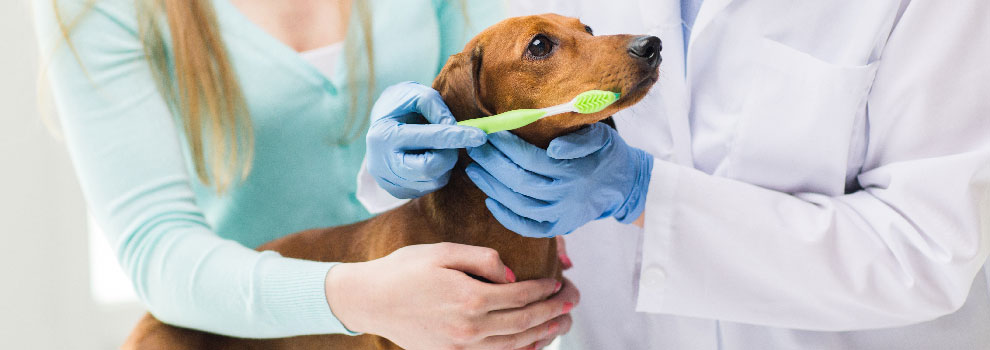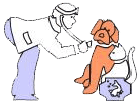Everyone has questions about their pets. Now you can see the most asked pet questions answered by your veterinarian. Covering everything from pet exams, dog scratching, cat drinking milk, and hip dysplasia.
1. Why do I need to bring my pet in for an annual exam to get prescription refills?

Veterinarians are regulated by the same pharmacy laws and rules, called the “practice act”, that human Doctors are subject to. Therefore, it is a legal requirement for us to require an annual exam when prescription medications are involved. This applies whether the medications are purchased from the vet or an outside pharmacy.
An annual exam is also an outstanding insurance policy to ensure your pet’s good health. We can often find problems early before they become a major issue and can help with guidance to assure your pet is as healthy as possible.
2. How do I get my pet in their crate for their vet appointment?

This is not always easy. Some coaxing will often get the job done. If that doesn’t work, what we often will do, is stand the carrier upright and lower the cat into the carrier with the back legs first. It usually gets the job done.
Finally, some cats will make you disassemble the carrier, put the cat in the bottom, and reassemble the carrier. I wish I had more magic answers than that, but some pets just don’t want to get in there and will fight it.
3. Should I get a microchip for my pet?

A microchip is a rice sized, permanent, device injected between the shoulder blades. If the pet is found by animal control or caregivers, like veterinary facilities the pet is scanned and a number is displayed. This number is associated with the owner’s information that is kept in a national database. These animals can then be returned to their owners.
Animals that do not have ID tend to end up in the shelter and then run the risk of not being returned to the owner. A lot of people think that their dog or cat will not run away, or a collar and tags are sufficient, but in my practice, I’ve seen one story after another where the unthinkable happens. Risks are minimal.
4. How can I get my pet to take their meds?

This can be a frustrating challenge.
For dogs, a majority of them will take their medication if it is put in cheese, peanut butter, or a treat like “Pill Pockets”. You can also place the pill on the back of the tongue, and the dog will swallow it. For cats, pilling is often easily done by opening the mouth with one hand and with the other hand, dropping the pill into the back of the mouth. Cats then reflexively swallow the pill.
There are some pets that will not accept a pill by these means. In this instance, then oral suspensions and liquids can be used. Even some medications that usually come in pill form can be made into an oral suspension by compounding pharmacies. As a final resort, there are sometimes long term shots and medications absorbed through the skin that can be used in certain circumstances. Talk to your veterinarian about any medicating concerns you may have. Sometimes a demonstration by veterinary staff can help a frustrated owner as well.
5. My dog’s nose is dry, should I be worried?

Most of the time, no, it is not a concern. It is normal for the nose to dry and harden some as the dog ages. Sometimes, some lotion will help this but it is rarely a serious problem. However, if the color of the nose changes, there are small sores or ulcers on the nose, or if there is persistent discharge from the nose, then all of these warrant an exam.
Not all of these indicate a serious problem but do generally require some level of treatment. Finally, a lot of folks will say that if a dog’s nose is dry, then the dog is sick. (and vice versa) This is far from accurate, either way.
6. My pet is always scratching their ears, could it be an infection?

It is certainly possible that it is an infection and persistent scratching does warrant an exam, but there are a couple more possibilities. The first is that there is something in the ear canal. The most common culprits are foxtail seeds that almost seem to magnetically be attracted to ears. Ticks and other objects can also do this.
The dog tends to be intensely distressed when this occurs. The other is the dog is suffering from allergies. Dogs will sometimes intensely scratch their ears when they are allergic. In fact, a large number of true ear infections are actually caused by allergies. In all such actions, a visit to the vet will get your pet the correct treatment.
7. Can I put my dog in the back of my truck?

Some municipalities prohibit this, but whether it is allowed or not, it is a bad idea. When dogs jump out of the back of a moving truck, it always ends badly and is never a pretty sight. Just don’t do it.
8. Are leftover bones bad for dogs?

Feeding leftover bones result in a lot of unnecessary vet bills. They often cause an upset stomach, diarrhea, vomiting, and fever. Worse yet, a large bone can cause intestinal obstruction and the need for surgery. Yes, many dogs love them, but just say no. There are lots of commercial treats that are a better option.
9. Can I feed my cat milk?

A lot of folks give their cats milk, but there is no good reason to do so. They do not get any missing nutrients from it and for many cats, it causes diarrhea. It can also be fattening. If your cat eats a good quality cat food, that is all she needs, nutritionally.
10. Why does my cat “knead” things?

We do not know why cats “knead”. The cat is usually contented when doing it. There are a few theories about it. It may be a leftover from when little kittens nurse. It may be a relaxing way to stretch for them. It may be some other reason we don’t know about. Regardless, it is a normal behavior usually done by a contented cat.
11. Should I keep my cat indoors?

It isn’t always possible, but if you can keep your cat indoors, you will likely have fewer health problems and vet bills. The chance of a cat picking up diseases goes up markedly if the cat goes outside. Also, the chance of catfighting with other cats and having wounds and abscesses goes way up if it is an outside cat. Indoor cats on average live longer than outdoor cats.
12. My cat sleeps all day, is this normal?

Yes, cats were derived from nocturnal wild ancestors. Sleeping during the day is entirely normal. That said, if your cat is now sleeping more than usual and is acting different from what he used to do, he should be checked.
13. How often should I take my pets in for teeth cleaning?

This varies from pet to pet, as well as some things the owner can do. Typically, the smaller the dog, the more often he/she will need a dental cleaning. Large dogs may only need cleanings once or twice in a lifetime. Toy breeds often need annual cleanings or more often.
Brushing your dog’s teeth as well as chew products like Greenies, C.E.T. Hextra Chews, and Hill’s T/D food can delay and sometimes eliminate the need for constant dental cleanings. There is a product called Oravet gel that can be applied to teeth in high risk dogs that can also reduce the frequency of needing dental cleanings.
14. My pet walks with a limp, should I bring them in for an appointment?

Dogs and cats will sometimes have minor sprains. However, these minor problems should be gone within a day or two. Any lameness where the leg is being held up completely, (non weight bearing) or where the lameness lasts more than 2 days, should be checked by a veterinarian.
15. My dog has hip dysplasia, what can I do to make him more comfortable?

This depends on how much underlying arthritis is present. Hip dysplasia causes an unstable hip and the result is arthritis. The result is pain.
Several things can be done.
First, keep the dog’s weight down. Increased weight results in a worse problem by putting more stress on the joint. Next, over-the-counter medications like Glucosamine-chondroitin can be given. Prescription pain medications can also be used. Finally, in some cases, surgery is an option. Speak with your veterinarian about the specifics of your pet’s care.
16. How often should I get my pet bathed?

This varies, depending on the dog’s skin and medical conditions, but most dogs only need to be bathed every 2 weeks or so. More frequent bathing can sometimes dry out the skin.
17. My pet is losing weight, should I be concerned?

Unless you have specifically put your pet on a diet, weight loss is always a concern. Almost all of the serious diseases that we routinely diagnose will involve weight loss. Weight loss is not an automatic death sentence as many causes of weight loss can be successfully treated or managed.
Also, pets do not lose weight just because they are old. Age is not a disease and is not the reason for weight loss. If your pet is noticeably losing weight, get him in for an exam right away.
18. My pet has lumps on their body, should I get this checked?

All lumps should indeed be checked. Most are not a problem, but a potentially dangerous tumor can often feel and look like a non-dangerous one. Some can be checked just by observation. Others require a simple test.
Many kinds of cancer, especially ones on the skin can be cured if we remove the tumor early, but cannot if the tumor is left there to enlarge and invade surrounding tissue.
 All About Pets
All About Pets 

